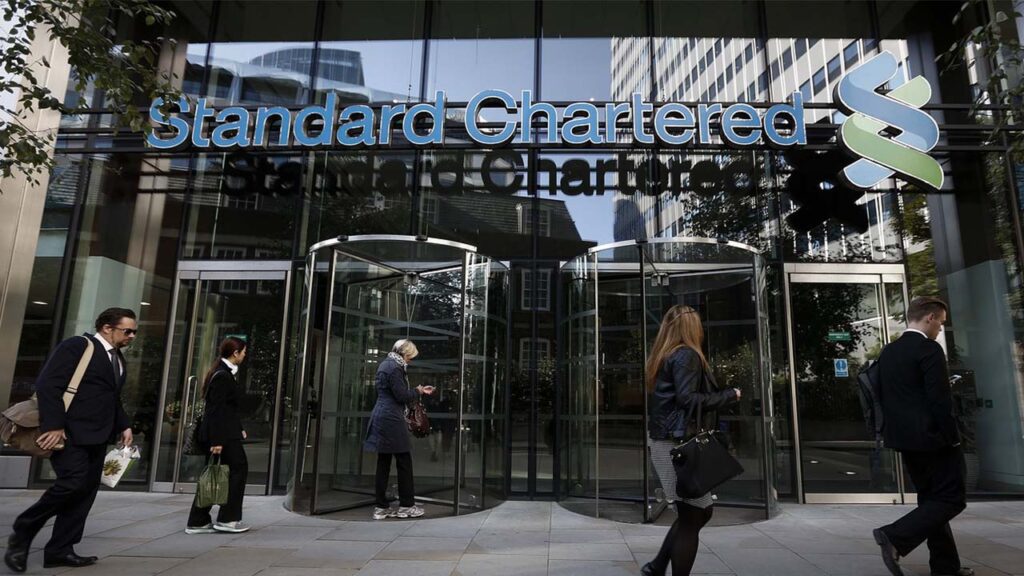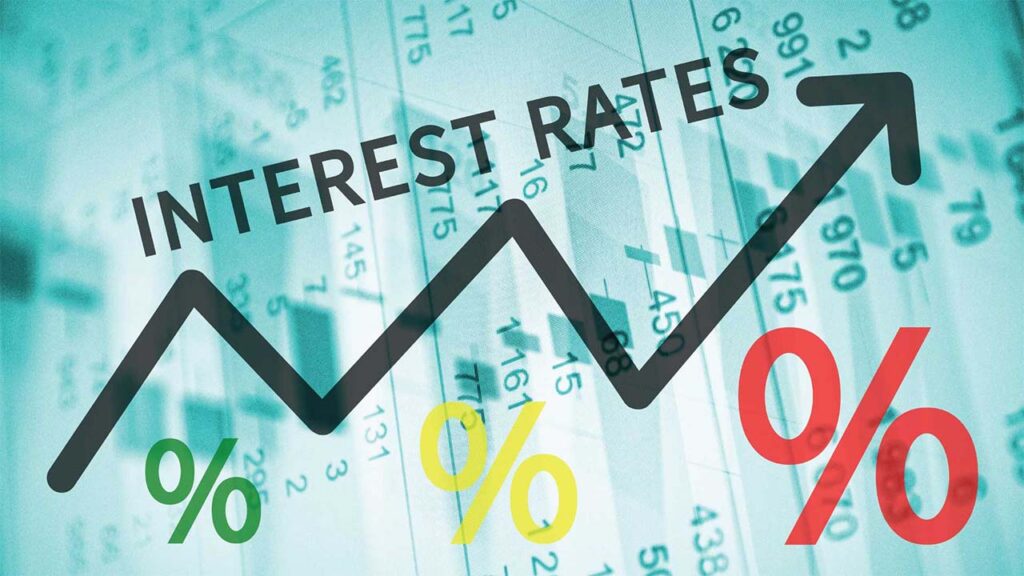SGDLoan.com – Finding the best commercial loan rates in Singapore is crucial for business owners and investors looking to maximise their property investments.
With a dynamic financial landscape and evolving lending regulations, understanding the trends and options available is more important than ever.
Singapore’s commercial loan environment continues to shift, especially with global economic uncertainties impacting domestic financial policies.
Businesses and investors need to stay alert to these changes to ensure they are securing the most competitive loan packages for their needs.
Before diving deeper into specific loan rates and comparisons, it’s essential to first understand what commercial loans entail and why their rates fluctuate in the Singapore market.
Understanding Commercial Loan Interest Rates in Singapore

Before choosing a commercial loan package, one must have a clear understanding of what commercial loan interest rates Singapore mean and how they operate.
Commercial loans in Singapore are financial products specifically tailored to fund business activities, commonly for the purchase, refinancing, or construction of commercial properties.
These loans differ from residential property loans mainly in their structure, approval process, and risk assessment.
There are two primary types of commercial loan interest rates available:
- Fixed Interest Rates
Fixed interest rates remain unchanged for a specified duration, usually the initial few years of the loan tenure. This option provides stability and predictability in monthly repayments, making it suitable for businesses that prefer certainty. - Floating Interest Rates
Floating rates are pegged to a benchmark such as SORA (Singapore Overnight Rate Average), and fluctuate according to market conditions. While potentially riskier, floating rates can lead to savings when market interest rates fall.
In 2025, the commercial loan rates Singapore landscape is showing moderate volatility.
According to updates from the Monetary Authority of Singapore (MAS), slight interest rate hikes are expected to manage inflationary pressures while sustaining economic growth.
Borrowers must stay informed about these monetary policy changes as they directly influence the singapore commercial loan interest rate they will be offered.
Comparative Analysis of Commercial Property Loan Rates

Understanding the different commercial property loan rate Singapore offerings across banks is essential for securing the best terms.
To make an informed decision, one must not only compare interest rates but also consider features like loan tenure, processing fees, and flexibility.
Below is a detailed comparison of major banks offering commercial loans in Singapore:
| Bank | Interest Rate (Indicative) | Key Features |
|---|---|---|
| DBS | From 3.70% | Competitive rates, flexible repayment terms, strong SME support |
| OCBC | From 2% (SORA pegged) | Attractive SORA-linked packages, early redemption flexibility |
| UOB | Competitive (varies) | Customised loan solutions, long tenures available |
| Maybank | Up to 80% financing | Low initial rates, up to 30 years repayment |
| CIMB | Flexible up to 30 years | Adjustable repayment schedules, minimal processing fees |
| Standard Chartered | Pegged to SORA or FD rates | Wide property type coverage, refinancing support available |
For example, OCBC’s commercial property loan rate Singapore is highly competitive, particularly for buyers seeking variable rates pegged to SORA.
Meanwhile, DBS has established itself as a top choice for SMEs with its flexible repayment terms and strong post-loan support services.
It is important to not just focus on the headline rates but to consider the total cost of borrowing, including ancillary fees like valuation charges, legal fees, and penalty charges for early repayments.
Factors Influencing Commercial Loan Interest Rates

Several dynamic factors play a critical role in determining singapore commercial loan interest rate offers from banks and financial institutions.
Understanding these can help businesses better time their applications and secure more favourable terms.
- Economic Indicators
Macroeconomic factors such as inflation rates, GDP growth, and unemployment rates directly impact the lending rates. Higher inflation typically leads to higher interest rates as central banks tighten monetary policy to control price stability. - Central Bank Policies
The Monetary Authority of Singapore’s adjustments to the Singapore Interbank Offered Rate (SIBOR) and subsequent adoption of SORA as the benchmark have reshaped how floating loan packages are priced. - Financial Institution Strategies
Banks set internal policies based on liquidity goals, risk appetite, and target market segments. During competitive periods, banks may offer promotional rates to attract new borrowers. - Property-Specific Factors
The type, location, and valuation of the commercial property are crucial. Prime locations or high-demand sectors like industrial properties often attract lower interest rates compared to niche sectors like leisure or specialty retail.
In essence, the more desirable the property, the more negotiating power the borrower has in obtaining a better commercial loan interest rate Singapore.
Tips for Securing the Best Commercial Property Loan Rates Singapore

Securing the best commercial loan rates Singapore is not just about applying to multiple banks but involves strategic planning and preparation.
Here are detailed steps businesses can take:
1. Maintain a Strong Credit Profile
A clean credit report, healthy cash flow, and a strong balance sheet enhance credibility. Financial institutions assess these elements rigorously before offering competitive rates.
2. Compare Across Banks and Financial Institutions
Different banks have different risk appetites. Tools like MoneySmart and SingSaver allow side-by-side comparisons, which can reveal hidden promotional rates.
3. Leverage Existing Relationships with Banks
Banks are more likely to offer better terms to customers with a strong banking history. Establishing multiple financial products such as corporate accounts and trade financing facilities can help.
4. Pay Attention to Loan Features Beyond Rates
Other factors such as prepayment penalties, processing fees, lock-in periods, and insurance requirements can significantly affect the true cost of the loan.
5. Engage Professional Brokers if Necessary
Mortgage brokers or commercial loan specialists often have access to unpublished rates or can negotiate better terms due to their network connections.
For instance, according to The Business Times Singapore in early 2025, many SMEs achieved savings of over 0.5% per annum by using licensed brokers to source for optimal packages.
How to Track and Adapt to Changes in Commercial Loan Rates Singapore

Given that the commercial loan rates Singapore market is highly dynamic, staying informed can offer a competitive advantage.
Here are some effective ways to track changes:
- Subscribe to Financial Newsletters
Institutions like DBS and OCBC provide timely updates on rate changes and new promotions via newsletters. - Monitor MAS Monetary Announcements
Policy announcements regarding monetary tightening or loosening often serve as early indicators of interest rate changes. - Use Rate Alert Tools
Platforms like MoneySmart offer rate tracking and alert services that help users act promptly when a favourable rate becomes available. - Review Loan Terms Regularly
Existing borrowers should review their loan packages annually and consider refinancing if market rates drop significantly.
By staying proactive, businesses can seize refinancing opportunities and adapt their financing strategies to maintain cost-efficiency.
Differences Between Commercial and Residential Property Loans in Singapore

Although they may seem similar at first glance, commercial and residential property loans in Singapore have significant differences that affect both the borrowing process and loan management.
Loan-to-Value Ratio (LTV)
Commercial loans typically allow a lower LTV compared to residential loans, often around 70-80% versus 75% or more for homes.
Interest Rates
Commercial property loan rates are usually higher due to the higher perceived risk associated with business investments.
Repayment Period
Commercial loans often have shorter repayment periods, ranging from 15 to 30 years, depending on the borrower’s profile and the property type.
Approval Process
Commercial loans involve a more rigorous assessment, including business financials, projected rental income, and company credit history.
Understanding these differences is crucial when preparing documentation and managing financial expectations during the loan application process.
Impact of SORA Transition on Commercial Loan Rates

The replacement of SIBOR with SORA as the primary reference rate has profoundly changed how floating rate loans are priced in Singapore.
SORA, being a backward-looking overnight rate, offers greater transparency and stability compared to the previously used forward-looking benchmarks.
Commercial property loan rate Singapore offerings linked to SORA now tend to have more predictable movements, reducing the speculative risks associated with future rate hikes.
Banks such as OCBC and Standard Chartered have shifted most of their floating rate packages to SORA-pegged structures, providing more consistent repayment schedules for borrowers.
This transition means borrowers should understand how their monthly payments can change based on the compounded SORA index rather than simple interest forecasts.
How to Prepare Financial Documents for a Commercial Loan Application
Proper preparation can significantly boost the chances of loan approval and influence the singapore commercial loan interest rate offered.
Key documents usually required include:
- Business Financial Statements (latest 2-3 years audited if possible)
- Bank Statements (past 6-12 months)
- Company Profile and Business Plan (especially for new businesses)
- Director’s Personal Income Documents (including Notice of Assessment)
- Property Details and Valuation Reports
Having a comprehensive and well-organised set of documents demonstrates reliability and reduces processing times, thereby enhancing approval rates.
Refinancing Strategies for Commercial Property Loans in Singapore
Refinancing a commercial loan can unlock better rates, improve cash flow, or adjust loan terms to suit new business needs.
Effective strategies include:
- Timing the Market
Monitor interest rate trends and refinance during low-rate periods to maximise savings. - Negotiating for Lower Rates
Existing relationships and a strong payment history can provide leverage for rate reductions during refinancing discussions. - Comparing New Packages
Evaluate total costs, including legal fees and potential penalties for early redemption, before committing to a new package.
By adopting a proactive refinancing strategy, businesses can ensure they are always benefiting from the best commercial loan rates Singapore available.
Choosing the right commercial loan rates Singapore can significantly impact your business’s financial health and long-term growth potential.
By staying informed about the market, understanding the factors influencing rates, and proactively managing your loans, you can secure financing that supports your business objectives efficiently.
Whether you are seeking new financing or planning to refinance existing loans, knowledge of the commercial property loan rate Singapore market landscape and careful lender comparison are key to achieving favourable outcomes.
Staying vigilant about singapore commercial loan interest rate trends ensures that your financial decisions are always aligned with both current market conditions and your business’s future plans.









